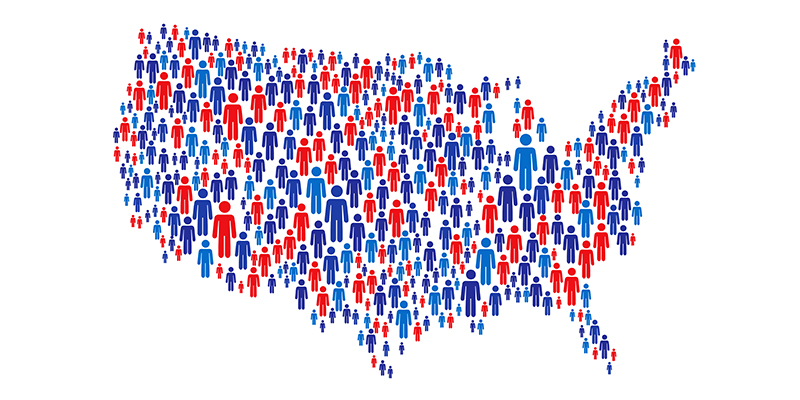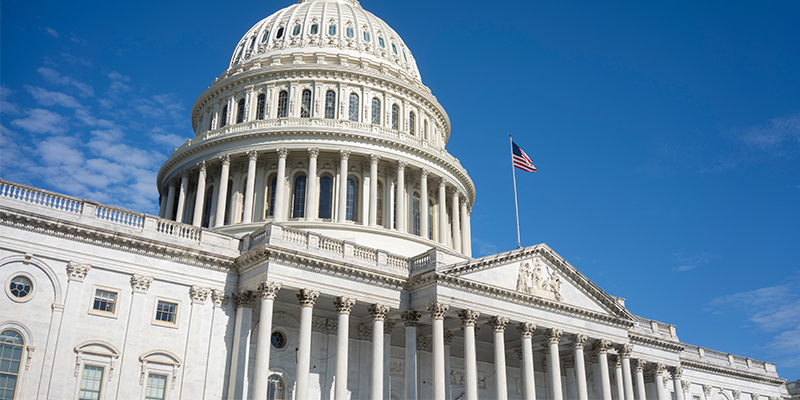While the primary focus of this year’s election is which party will control the U.S. Senate and House of Representatives next year, gubernatorial races are also being held in 36 states. The outcome of many of these races is difficult to predict and may depend on a candidate’s position on certain core economic issues. Economic issues of importance to commercial real estate include the state of the economy; current and projected inflation and interest rate levels; and the overall cost of doing business as a result of increased regulatory costs. Depending on the state, other issues may be more prominent, such as education, public safety, abortion, the environment and election integrity.
The Georgia gubernatorial race is one that is closely being watched as Republican Governor Brian Kemp faces a rematch with his 2018 challenger, Democrat Stacey Abrams, a former member of the Georgia House of Representatives. Kemp narrowly defeated Abrams on a vote of 50% to 49% in a state then considered solidly Republican. The candidates’ positions on issues mostly align with their national political parties, so the outcome of the election may hinge on voter turnout with the edge towards the incumbent. A recent poll in the Atlantic Journal-Constitution has Kemp leading Abrams by 10 points: 51% to 41%.
New Mexico Governor Michelle Lujan Grisham, a Democrat, is being challenged by Republican Mark Ronchetti, who ran for the U.S. Senate in 2020. The race is expected to focus on education, the economy, abortion and community safety. Politico has recently rated the race as leaning Democrat, which means that Ronchetti may have a path to the governor’s mansion if he can attract enough independent voters on Nov. 8. The University of Virginia’s Center for Politics has broken down the state’s party affiliation as 46% Democrat, 31% Republican and 22% Independent. In assessing the outcome of a candidate debate held last week, KOAT Political Expert Brian Sanderoff concluded that “if you ask a Republican, they will say Ronchetti, if you ask a Democrat, they’d say Lujan Grisham.” Which way the independent vote in the New Mexico race swings will determine the winner.
Races for governor in Arizona and Oregon are also very tight. Both Arizona Governor Doug Ducey (R) and Oregon Governor Kate Brown (D) are unable to run again because of state-imposed term limits. These open seats have provided an opportunity for the opposing party’s candidate to retake the governorship and shift the policy debate within their respective states.
The Arizona governor’s race matches Democrat Secretary of State Katie Hobbs against Republican and former television anchor Kari Lake. Despite their differences on state and local issues, the 2020 presidential election is at the forefront of the race. Lake adamantly denies the integrity and election results of the 2020 presidential election in her state – results that were certified by Secretary of State Hobbs.
In Oregon, three candidates are vying to succeed Governor Kate Brown. These are Democrat Tina Kotek, a former state House Speaker; Republican Christine Drazan, the former state House Minority Leader; and Betsey Johnson, a former Democrat in the state senate who is running as an Independent. The three have raised more than $50 million and are starting to bring in big outside names, such as President Joe Biden and Virginia Governor Glenn Youngkin, to join them on the campaign trail, according to the Oregon Capitol Chronicle. A plurality of the vote determines the winner in the Oregon race. Unless one withdraws, the outcome of this one could depend on the extent to which Kotek and Ms. Johnson split the Democratic base, opening a path for Christine Drazen to win the vote.
The outcome of these four gubernatorial races is sure to have a significant impact on issues of importance to NAIOP members and the commercial real estate industry. As always when it comes to elections, NAIOP members need to remain informed and engaged in the election process, to ensure that both sides understand the impact of their policies upon the industry.








